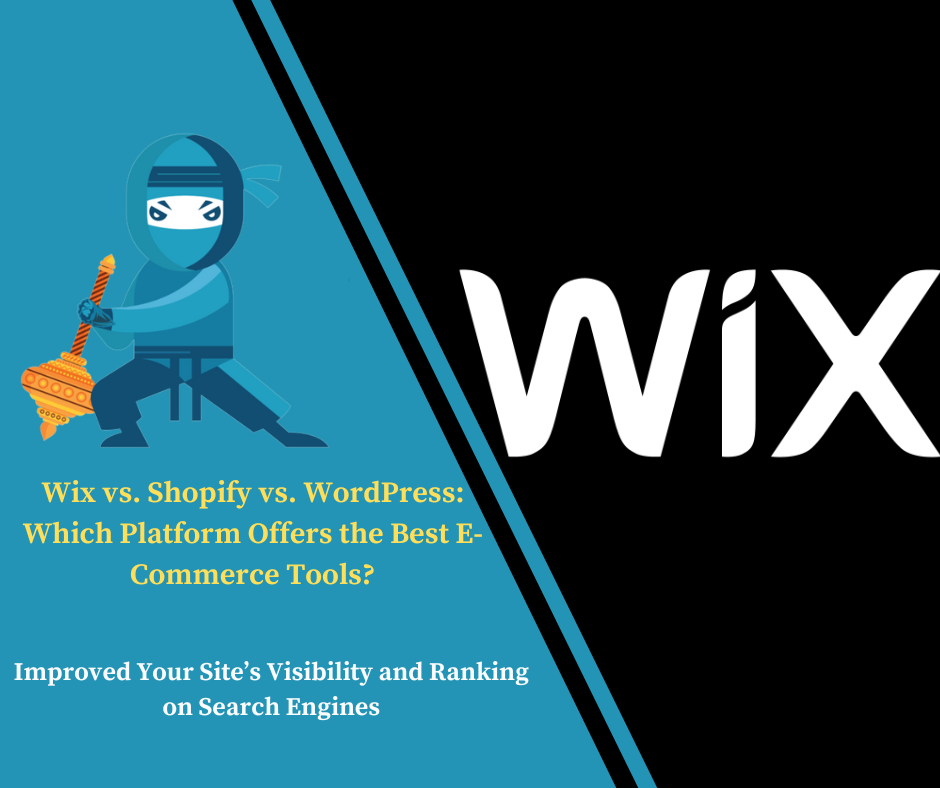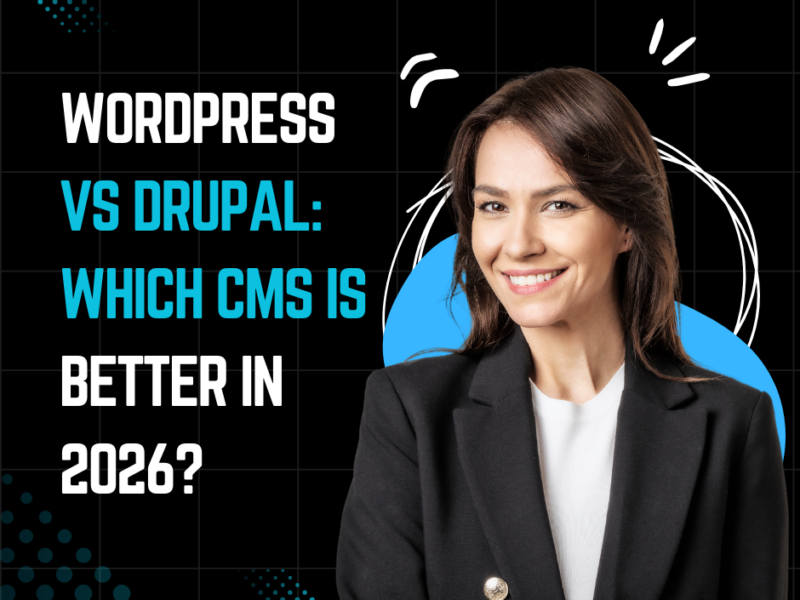Wix vs. Shopify vs. WordPress: Which Platform Offers the Best E-Commerce Tools?
When building an online store, choosing the right platform is crucial for your e-commerce success. Among the most popular options are Wix, Shopify, and WordPress, each offering a range of tools tailored for eCommerce. But which one is the best for your business? In this detailed comparison of Wix vs. Shopify vs. WordPress, we will explore the strengths and weaknesses of each platform to help you make an informed decision.
Overview of Wix, Shopify, and WordPress
Before diving into the specifics, let’s briefly examine what each platform offers.
Wix: Known for its ease of use, Wix is a drag-and-drop website builder that allows users to create visually appealing websites without the need for coding quickly. While it’s traditionally been more focused on general website building, Wix has integrated eCommerce functionalities for small to medium-sized online stores.
Shopify: Shopify is a dedicated eCommerce platform designed to cater specifically to online store owners. From small startups to large-scale enterprises, Shopify provides everything you need to create, manage, and scale an online store.
WordPress: Unlike Wix and Shopify, WordPress is an open-source platform, which means it’s extremely flexible. Paired with WooCommerce, WordPress offers powerful eCommerce features and a vast array of plugins, allowing users to customize their online stores in almost any way imaginable.
Now, let’s compare these platforms based on several critical eCommerce factors.
1. Ease of Use
Wix: Wix is known for its simplicity and user-friendly interface. It uses a drag-and-drop builder, making it easy for beginners to create an eCommerce website without touching any code. Setting up an online store on Wix is straightforward and ideal for those who don’t want to invest a lot of time learning the platform.
Shopify: Shopify is also user-friendly, though its interface is specifically tailored to eCommerce. Even beginners can set up a fully functional online store in a short amount of time. Shopify guides users through every step of the process, from choosing a theme to setting up payments and shipping.
WordPress: WordPress, combined with WooCommerce, offers the most flexibility, but it comes with a steeper learning curve. Unlike Wix and Shopify, WordPress doesn’t offer a drag-and-drop builder by default, although you can install page builder plugins. While it offers more customization, users will need some technical skills to get the most out of it.
Winner: Wix (for beginners), Shopify (for eCommerce focus), WordPress (for customization)
Also read: Shopify vs. OpenCart: A Feature-by-Feature Breakdown
2. Design and Customization
Wix: Wix offers a wide variety of customizable templates specifically designed for online stores. These templates are easy to modify, and the drag-and-drop editor gives users full control over the layout. However, advanced customizations may be somewhat limited compared to WordPress.
Shopify: Shopify has a selection of eCommerce-focused themes, both free and premium, that are responsive and visually appealing. While the customization options are somewhat limited compared to WordPress, Shopify themes are optimized for eCommerce, ensuring smooth navigation and a great user experience.
WordPress: WordPress, with WooCommerce, offers unlimited design possibilities. Since WordPress is open-source, you have full control over the design of your online store. You can use thousands of free and premium themes, and if you have coding skills (or hire a developer), the sky’s the limit in terms of customization.
Winner: WordPress (for design flexibility), Shopify (for eCommerce focus), Wix (for ease of design)
3. E-Commerce Features
Wix: Wix offers basic eCommerce tools, including inventory management, product pages, and multiple payment gateways. While it works well for small businesses, its eCommerce tools are somewhat limited compared to Shopify and WordPress. Wix also charges transaction fees unless you subscribe to one of their higher-tier plans.
Shopify: Shopify shines in this area, offering a wide range of built-in eCommerce features like abandoned cart recovery, multiple sales channels, detailed reporting, and shipping options. Shopify also integrates seamlessly with a large number of apps and third-party services that can further enhance your store’s functionality.
WordPress: WordPress with WooCommerce provides extensive eCommerce capabilities, from product management to complex shipping options. WooCommerce’s flexibility allows for custom features like subscription services, booking systems, and more. With the right plugins, you can add almost any functionality to your online store, although it requires more manual setup compared to Shopify.
Winner: Shopify (for built-in eCommerce tools), WordPress (for custom eCommerce solutions)
4. Pricing
Wix: Wix’s eCommerce plans start at around $23 per month, which includes hosting, domain, and basic eCommerce functionalities. However, advanced features like removing Wix ads and adding third-party apps come with higher-tier plans.
Shopify: Shopify pricing starts at $39 per month, with more advanced plans offering reduced transaction fees, more features, and better shipping rates. While Shopify offers a lot for the price, it’s one of the more expensive options, especially as your store grows and you require more apps.
WordPress: WordPress itself is free, but you’ll need to pay for hosting, a domain, and any premium themes or plugins. WooCommerce is free, but certain features may require paid extensions. This makes WordPress/WooCommerce more flexible in terms of pricing, especially for those willing to manage their store themselves.
Winner: WordPress (for pricing flexibility), Wix (for straightforward pricing), Shopify (for built-in eCommerce tools)
5. SEO and Marketing Tools
Wix: Wix offers decent SEO tools like meta tags, alt text, and URL customization. However, Wix has faced criticism in the past for poor SEO performance compared to other platforms. It does offer email marketing integration and social media tools but lacks the depth of features provided by Shopify or WordPress.
Shopify: Shopify’s SEO tools are solid, offering built-in features to help improve search engine rankings. Shopify also integrates with Google Analytics, Facebook ads, and email marketing platforms, making it easier for online stores to manage marketing campaigns.
WordPress: WordPress is well-known for its SEO capabilities, particularly when combined with plugins like Yoast SEO or Rank Math. With WordPress, you have full control over your website’s SEO settings, and WooCommerce also integrates with various marketing platforms and tools, allowing for highly customized marketing campaigns.
Winner: WordPress (for SEO control), Shopify (for built-in marketing tools)
FAQ
Which platform is better for small businesses?
For small businesses, Wix is a great option due to its ease of use and simple pricing structure. If you need more advanced eCommerce tools, Shopify is also a strong contender.
Can I switch from Wix or Shopify to WordPress later?
Yes, it is possible, but migrating from Wix or Shopify to WordPress can be complex. You may need the help of a developer to transfer your website and data without losing SEO rankings or sales.
Which platform is more affordable?
WordPress is generally more affordable, especially if you can manage hosting and plugins on your own. However, for simplicity, Wix has more straightforward pricing. Shopify is the most expensive but offers the best built-in eCommerce features.
Which platform is best for SEO?
WordPress, when used with SEO plugins like Yoast, offers the most control over SEO. Shopify also provides solid SEO features, while Wix has room for improvement.
Conclusion
In the debate of Wix vs. Shopify vs. WordPress, the right choice ultimately depends on your specific needs.
Wix is perfect for small businesses or beginners looking for a simple, easy-to-use platform without the need for extensive eCommerce features. Shopify is the best choice for businesses focused solely on eCommerce and looking for a platform that offers comprehensive eCommerce tools without the need for heavy customization.WordPress, paired with WooCommerce, is ideal for those who want complete control over their website and the ability to scale and customize extensively.








